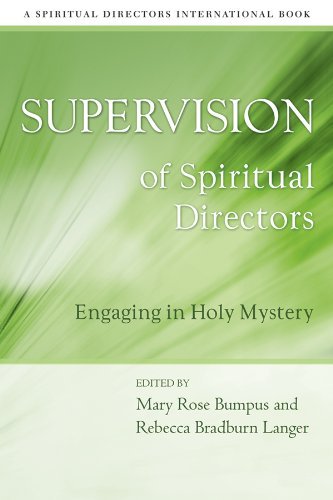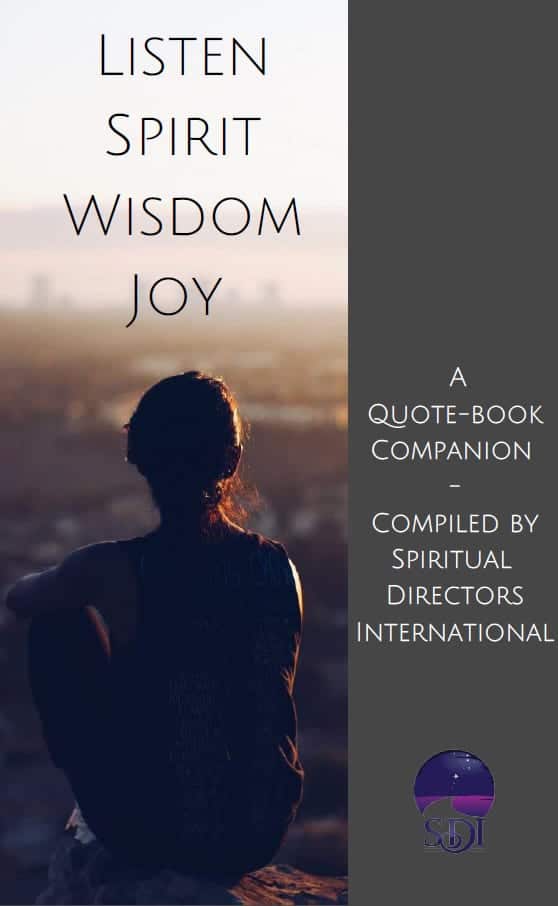Supervision of Spiritual Directors
Supervision of Spiritual Directors: Engaging in Holy Mystery by Mary Rose Bumpus and Rebecca Bradburn Langer
This collection of essays is one of the first books in the field that help with the training of supervisors. Written by spiritual directors who have years of experience in supervision between them, this book engages some of the leading voices in the field in an exploration of a wide variety of issues, including: gender and sexuality; ethical dilemmas; working with diverse racial ethnic constituents; working with the differently abled; the parameters of supervision; the supervision of beginning directors, and more.
Reviews
Please offer a review. E-mail [email protected] and let us know what you think or how you are applying Supervision of Spiritual Direction in your life or work.
“This volume, edited by Mary Rose Bumpus and Rebecca Bradburn Langer, is a welcome addition to the relatively limited literature on the supervision of spiritual directors. The book is divided into three sections.
The three essays in Part I deal with the question, “What is Supervision?” These essays are helpful in exploring what is unique to supervision of spiritual directors (as opposed, for example, to supervision of therapists). While the authors take different approaches, they tend to focus on what might broadly be termed the “contemplative” aspects of supervision. What is the vocation and charism of the person receiving supervision? How might God be working in the lives of those with whom the spiritual director is meeting?
Part II is entitled “Specific Topics in Supervision” and contains four essays dealing with support of beginning directors, listening to the various dimensions of human experience (sensations, emotions, and thoughts), appropriate attention to sexuality, and avoiding ethical quagmires. If Part I lays out some theoretical approaches to supervision, Part II contains practical suggestions and helpful case studies. Beginning supervisors will especially find these chapters enlightening, and even experienced supervisors will find insights worth further mining. This reviewer found the essays on sexuality and on ethical quagmires particularly helpful.
Finally, the three essays in Part III explore the topic of “Worldview and Supervision.” The authors in this section argue that the context of supervision goes well beyond the one-to-one encounter taking place in the supervisor’s office. The essays explore issues embedded in social or institutional structures, in “co-cultures” (or what readers may more familiarly call sub-cultures), and in the disabled community. The first essay lays out a helpful model of discussing supervision in dimensions of human experience which are nonthematic (diffuse and inarticulate), imagistic (affective-imaginative), and interpretive (logical, propositional).
A particularly useful appendix in the book presents a Contemplative Reflection Form which can be adapted by other supervisors after receiving written permission. This is a form which supervisees fill in prior to meeting with their supervisor. This tool is worth considering for adaptation to other programs.
The authors in this volume are almost all associated with the Diploma in Spiritual Direction offered by San Francisco Theological Seminary in San Anselmo, CA. The advantage of this is that they share a similar approach to supervision; the disadvantage is that a wider variety of voices is not heard. Also, several of the articles, in this reviewer’s opinion, addressed spiritual direction almost as much as they addressed supervision. A clearer distinction of supervision from spiritual direction would be appreciated.
Overall, Supervision of Spiritual Directors is well done and a must read for those involved in this ministry. Supervisors will find helpful suggestions both for the theory and the practice of supervision.”
Bruce H. Lescher, PhD, Jesuit School of Theology at Berkeley. The review first appeared
in Reflective Practice: Formation and Supervision in Ministry, vol 27
“Supervision of Spiritual Directors: Engaging in Holy Mystery makes a fine contribution to the training of spiritual directors. I highly recommend it as an excellent resource for new and experienced supervisors and spiritual directors.”
Cissy McLane, co-founder of the Ignation Spirituality Center,
Seattle, Washington, USA.


